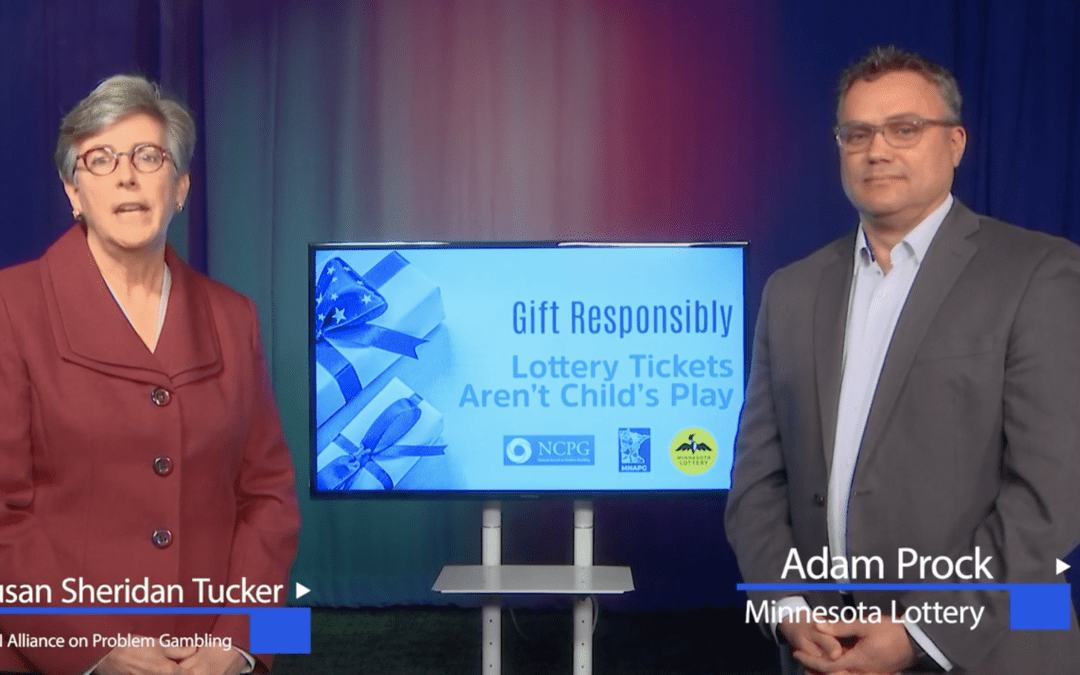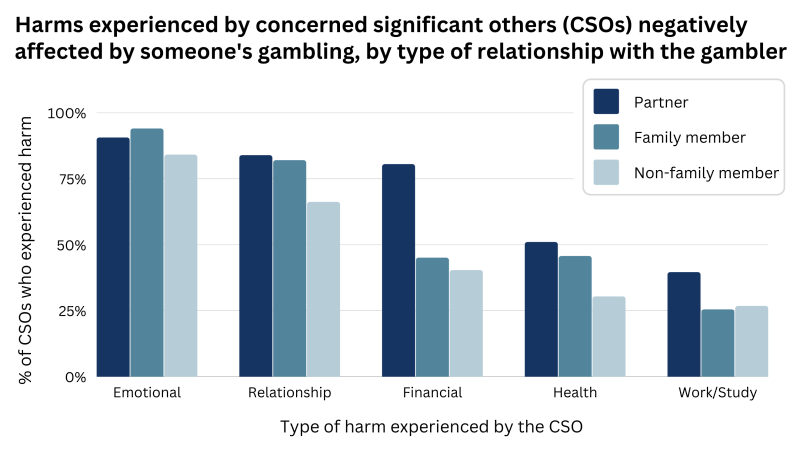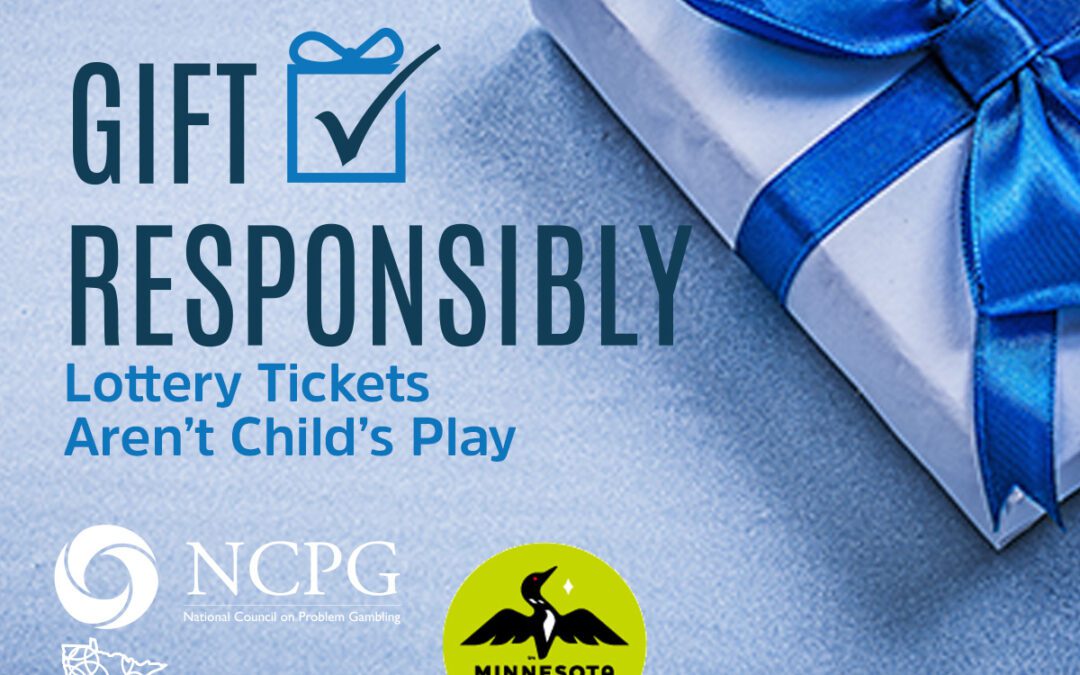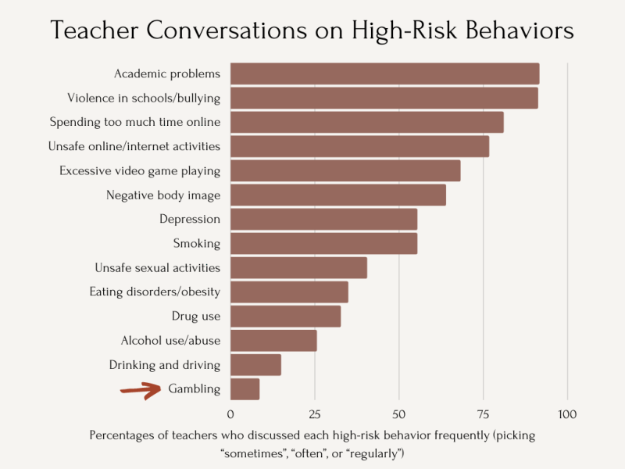Although Dianne is not a big football fan, she’ll never forget the Monday Night Football game between the Minnesota Vikings and Dallas Cowboys on January 3, 1983. It was the first major bet her husband, Don, placed on a football game. He bet a whopping $1,500 – an amount to cover accumulated gambling losses to date – and lost.
More than 25 years later, Dianne shudders at the memory of that night. She looks back on it as the beginning of a 14-year period in which her husband’s gambling took the family on a roller coaster ride it never wanted.
Shortly after that Vikings game, Don’s gambling losses began to mount. It soon led to another early memory that haunted the family: his young children watched in dismay as a stranger came into their house to remove a Betamax machine, the sales proceeds of which would be used to settle gambling debt. In the first of many gambling-related lies to his children, Don explained that the machine was broken.
In time, Don’s betting advanced from football to all other sports, and he soon had his own bookie. “I bet every day of the year except the Monday and Wednesday before and after the baseball all-star game, the only two days of the year when there was no sports betting,” says Don.
After Don’s bookie was the subject of a police raid, federal agents dressed in suits and badges came to the house. That development sent shock waves through the family. “That really scared the kids and I felt we couldn’t have that,” says Dianne. She subsequently packed up the kids and moved in hopes of finding a more stable home environment.
The sight of an empty house served as the first wakeup call for Don. He began attending Gambler’s Anonymous in 1986 and convinced Dianne he was ready to quit. Only he really wasn’t.
Shortly thereafter, Dianne came across a piece of paper with a list of football games while the couple was away at a cabin. “I was assured by Don that they were old games because he’d quit gambling.” She later confirmed the list was for current football games.
As a result, Don became increasingly sneaky in his dealings. He cancelled handball games with friends and rearranged work shifts so he could find more time for gambling at the casino. Don learned to kite checks from three checking accounts he created, and found himself visiting a banker every day. “I could at least relax on the weekends when the banks were closed,” recalls Don some 20 years later. He was working one job and half of another “to keep all the balls in the air.”
Don forged his wife’s signature a few times to take out loans to pay gambling debts. With a flexible work schedule, Don, who controlled the family’s finances, arranged to be home when he knew the mailman would arrive, meeting him several houses in advance. “The joke was that I was having an affair with the mailman,” says Don.
The cycle of lies and deceit – as well as a general absence from the family – continued through 1994, about eight years after Don first attended GA. On Tuesday, December 27, 1994, he called in sick to work and cancelled a handball match with a friend so that he could stay at a casino. When Don, who called his wife every afternoon like clockwork, didn’t call at the usual time, Dianne suspected the worst. Late that afternoon, a call finally came. “Would you mind if I cashed another $100 check,” Don asked? “Do whatever you want, stay as long as you want, I don’t care,” said his defeated wife of 16 years.
Don came home in the wee hours of the morning on Wednesday, but to a bedroom that was locked. He knew he’d hit rock bottom and had to stop gambling. He went to GA that night and has been attending religiously every since. That Tuesday night was the last time he’s every gambled.
Today, Don is well into his recovery and is a thriving member of society. He considers himself fortunate in that GA has helped him, and helped him at age where he can still repay his debts and hopefully accumulate something of a nest egg. Other gambling addicts require individual treatment and counseling to help in their recovery.
The road has been long and not without challenges. “It was particularly tough to quit at the beginning,” says Don. “Even several years into it, I remember seeing a list of football games and asking myself if the Packers would cover the spread, etc.” For her part, all these year’s later, Dianne’s stomach still turns when she sees her husband turn the channel from one football game to another, conditioned for so many years to think he’s checking on games he bet on.
Forgiveness, after so many years of deception, is difficult to grant. In Don and Dianne’s case, a more complete healing didn’t occur until well after Don had quit gambling and the couple had engaged in Retrouvaille, a type of marriage counseling that’s not unlike a 12-step program.
Thankfully, much of the damage caused by Don’s gambling has gradually healed. His daughter, who wouldn’t allow him to attend her high school graduation nor be part of her wedding, has reconciled with Don. “Our kids carried around a ton of hurt from what their father did,” says Dianne. “It seemed like every time we wanted to do something as a family, all the sudden he was gone. For the kids, it was one broken promise after another.”
Today, 17 years into his recovery, Don’s promises are as good as gold.






 Figure. Percentages of teachers who discussed each high-risk behavior frequently (picking “sometimes”, “often”, or “regularly”). Total n = 157 primary and secondary school teachers from mainstream schools in the UK. Adapted from Figure 3 in Roberts et al. (2022). Click image to enlarge.
Figure. Percentages of teachers who discussed each high-risk behavior frequently (picking “sometimes”, “often”, or “regularly”). Total n = 157 primary and secondary school teachers from mainstream schools in the UK. Adapted from Figure 3 in Roberts et al. (2022). Click image to enlarge.